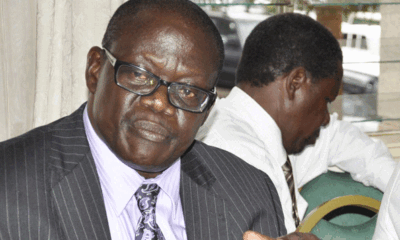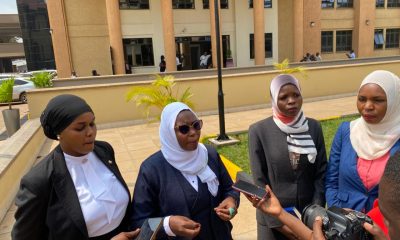Law
Government to Pay Over Shs 1 Billion to Uganda Motors After Supreme Court Faults Land Registrar
The Supreme Court of Uganda has ordered the government to pay over Shs 1 billion in compensation to Uganda Motors Limited, ruling that the Registrar of Titles’ failure to register a caveat led to the company’s loss of a prime piece of land in Banda, Wakiso District.
In a landmark judgment delivered by Justice Catherine Bamugemereire, the court found that the omission by officials at the Ministry of Lands was the primary cause of the company’s loss, and not court decisions as previously determined by the High Court and the Court of Appeal.
“It is not enough for an individual to have a duty of care and then breach that duty by not living up to the standard of conduct expected of them. The conduct ought to cause the damage that the claimant has suffered. The officers in the Lands Ministry are largely responsible for the loss of land occasioned by their omissions,” Justice Bamugemereire stated in her lead ruling.
The dispute dates back to July 2000, when Uganda Motors attempted to protect its 5.5-acre parcel of land in Kireka/Banda by lodging a caveat on the land title to prevent any transfer of ownership amid a legal battle with Directel (U) Ltd. Despite receiving the caveat on July 12, 2000, the Registrar of Lands failed to register it, and on that same day, the land was subdivided and transferred to new owners including David Mugume and Abraham Arapundiwa, with further transfers occurring just five days later.
The court noted that Uganda Motors had earlier lost the land due to a Shs 7.6 million debt-related lawsuit filed by Directel. The land was sold off before Uganda Motors and Directel later agreed to an out-of-court settlement. However, a new claimant, Arthur Mukwatanise, who had acquired part of the land, challenged the consent judgment in 2002, leading to Uganda Motors’ restoration being cancelled by the court.
In 2006, Uganda Motors filed suit against the Attorney General, seeking compensation for the wrongful loss of its property, but the High Court dismissed the claim, reasoning that the loss stemmed from valid court orders, not government negligence — a view later upheld by the Court of Appeal.
The Supreme Court, however, disagreed. Justice Bamugemereire sharply criticized both lower courts for failing to properly evaluate the evidence, particularly the Registrar’s inaction regarding the caveat.
“Had the learned Justices of Appeal critically examined the evidence on record, they would have found that the failure to register the caveat on the title was a material fact and would not have concluded as they did that the loss of land was precisely due to court orders,” she wrote.
The judgment awarded Uganda Motors Shs 900 million in special damages, with 10% interest backdated to 2006, and an additional Shs 100 million in general damages, with interest to accrue from the date of the Supreme Court’s ruling.
The case has raised fresh concerns over the efficiency and accountability of land administration systems in Uganda, where errors or omissions by registrars can result in significant financial losses for private entities. The ruling also signals the judiciary’s increasing willingness to hold state institutions accountable for administrative negligence.
The Supreme Court panel included Justices Percy Night Tuhaise, Elizabeth Musoke, Steven Musota, and Monica Mugenyi, who unanimously concurred with Justice Bamugemereire’s decision.
Legal experts say the verdict sets an important precedent for state liability in land registration errors and may prompt reforms within the Ministry of Lands to avoid future costly blunders.
Comments



























